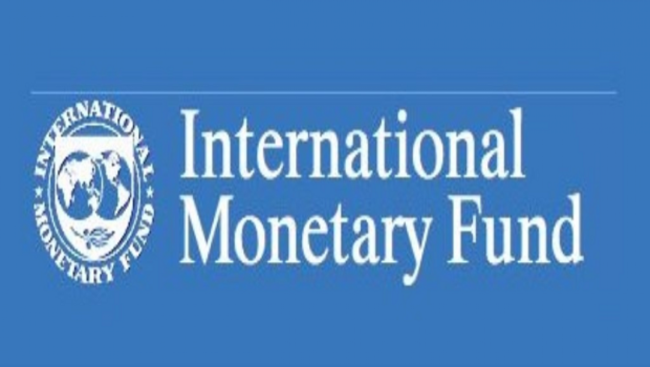IMF recommends 15% VAT rate to Nigeria, other economic reforms
[ad_1]
The International Monetary Fund (IMF) has recommended to the Federal Government a number of reforms that are critical to creating much-needed fiscal space for economic growth, urging the government to raise Value Added Tax(VAT) from 7.5 per cent to 15 per cent.
The IMF prescribed a package of measures, which are estimated to create fiscal savings of close to 6 per cent of GDP during the period 2023-27 while also making room for higher social spending, and urged the government to undertake bolder fiscal reforms to create policy space.
The Fund advised the authorities to adopt tax policy reforms by considering adjusting tax rates to levels comparable to the average in the Economic Community of West African States (ECOWAS) as compliance improves.
“This includes further increasing the VAT rate to 15 per cent by 2027 in steps while streamlining numerous VAT exemptions based on systemic reviews, increasing excise rates on alcoholic and tobacco products while broadening the base, and rationalizing tax incentives by streamlining tax expenditures based on comprehensive periodic reviews.”
Also, the Fund urged the Federal Government to step up the implementation of tax administration reforms and welcomed the steady implementation of the tax automation system (TaxPro Max).
It recommended stepping up efforts to further expand coverage under a well-designed roadmap and strengthen taxpayer segmentation centring on the Large Taxpayer Offices (LTOs).
“In the medium-term, the authorities should develop a compliance improvement programme and comprehensive customs modernisation programme, improve the effectiveness of the State Internal Revenue Service’s administration of the Pay-As-You-Earn (PAYE) system, and strengthen inter-agency coordination and data sharing,” the IMF stated.
The recommendation is contained in the Staff Concluding Statement of the 2022 Article IV IMF Mission to Nigeria, which was released over the weekend.
The IMF observed that public finance is under stress with elevated fiscal deficits, high debt servicing costs and public debt projected to increase over the medium term.
It noted that despite higher non-oil revenues relative to 2021, the Federal Government fiscal deficit is projected to widen to 6.2 per cent of GDP in 2022, mainly due to fuel subsidy costs.
According to the IMF, “Without bolder revenue mobilisation efforts, costly fuel subsidies and rising debt servicing costs will keep overall fiscal deficits above 6 per cent of GDP in the medium term raising public debt to about 43 per cent of GDP by 2027.
“While still deemed sustainable, such a level of debt is projected to take up nearly half of the Federal Government’s revenues in interest payments making the fiscal position highly vulnerable to real interest rate shocks. It also leaves little fiscal room for vital social spending on education and health, where Nigeria fares poorly compared to peer countries in sub-Saharan Africa (SSA).
“Urgent revenue mobilisation and fuel subsidy reforms are critical to creating much-needed fiscal space. Successful revenue mobilisation episodes in SSA highlight the need for comprehensive fiscal reforms supported by high-level political commitment.”
Specifically, the Mission recommended: “Remove fuel subsidies and address oil theft. As a near-term priority, the mission highlighted the urgent need to remove fuel subsidies fully and permanently, which disproportionately benefit the well-off, by mid-2023 as planned. The government should also prioritise addressing oil thefts and governance issues in the oil sector to restore production to pre-pandemic levels.”
Also, it advised the government to increase well-targeted social assistance to mitigate food insecurity and cushion the impact of high inflation and fuel subsidy removal on the poor.
The mission recommended increasing social spending by up to 1.7 per cent of GDP during 2023-27 in well-targeted programmes in coordination with the World Bank and other development partners.
Among other recommendations, the IMF noted that fiscal transparency is critical for a sound fiscal policy and that notwithstanding recent improvements, some gaps remain.
“While the authorities have published the annual financial reports of the state-owned Nigerian National Petroleum Company (NNPC) since 2019, uncertainties remain regarding the nature of tax write-offs and fuel consumption volumes,” the IMF stated.
The mission recommended a closer look at the nature of NNPC’s financial commitments to the government and the costing details of the fuel subsidy, including a thorough financial audit, stronger cash management and better coordination among key public institutions as they are needed to increase the realism of budgetary forecasts and reduce reliance on central bank overdrafts.
ALSO READ FROM NIGERIAN TRIBUNE
[ad_2]















Post Comment